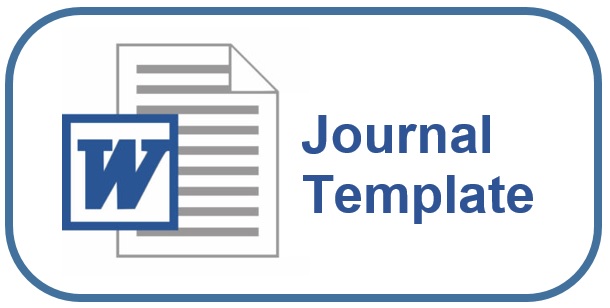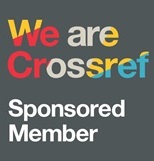Program Latihan dan Komunikasi Pemenuhan Activity Daily Living Pasien Pasca Stroke dengan Gangguan Kognitif
DOI:
https://doi.org/10.36277/abdimasuniversal.v7i1.2438Keywords:
nurses, stroke patients , post-stroke cognitive impairment, health education, digitalization mediaAbstract
Cognitive impairment is one of the side effects that often occurs in stroke patients which will reduce the patient's ability to fulfill the daily needs of Activity Daily Living (ADL) that can cause a decrease in the quality of life so that it causes healing to be long, the length of hospitalization extends, becomes an economic and social burden on the families. The physical and cognitive disabilities experienced also cause various nursing problems. It is very important for nurses to recognize the occurrence of cognitive impairment in post-stroke patients starting from assessment and if there is cognitive impairment, so that nurses can intervene with exercise therapy and communication in cognitive impairment of stroke patients. The method used is training with evaluation in the form of pre and post tests. The material provided is an assessment of cognitive impairment and a communication training program for ADL fulfillment in post-stroke patients with cognitive impairment consisting of 2 two sessions and followed by a question and answer discussion session and role play using digital media. The results showed an increase in knowledge and skills of nurses in assessing cognitive impairment and training and communication of ADL fulfillment in post-stroke patients with cognitive impairment.
Downloads
References
Anita, F., & Linggi, E. B. (2020). Gambaran gangguan fungsi kognitif pasien paska stroke di Rumah Sakit Stella Maris Makassar. Jurnal Keperawatan Florence Nightingale, 3(1), 7–11. https://doi.org/10.52774/jkfn.v3i1.50.
Boletimi, R. O., Kembuan, M. A. H. N., & Pertiwi, J. M. (2021). Gambaran Fungsi Kognitif Pasien Pasca Stroke. Medical Scope Journal, 2(2), 66–72. https://doi.org/10.35790/msj.2.2.2021.32546.
Cogollor, J. M., Rojo-Lacal, J., Hermsdörfer, J., Ferre, M., Teresa Arredondo Waldmeyer, M., Giachritsis, C., Armstrong, A., Manuel Breñosa Martinez, J., Anabelle Bautista Loza, D., & María Sebastián, J. (2018). Evolution of cognitive rehabilitation after stroke from traditional techniques to smart and personalized home-based information and communication technology systems: Literature review. JMIR Rehabilitation and Assistive Technologies, 20(3). https://doi.org/10.2196/rehab.8548.
Gangemi, A., De Luca, R., Fabio, R. A., Lauria, P., Rifici, C., Pollicino, P., Marra, A., Olivo, A., Quartarone, A., & Calabrò, R. S. (2023). Effects of Virtual Reality Cognitive Training on Neuroplasticity: A Quasi-Randomized Clinical Trial in Patients with Stroke. Biomedicines, 11(12), 1–14. https://doi.org/10.3390/biomedicines11123225.
Gillen, G. (2016). Stroke Rehabilitation A Function-Based Approach (Fourth Edi). Elsevier. https://media.oiipdf.com/pdf/43660146-c1c6-4a24-9cb9-8dc650d7e5b3.pdf.
Jones, S. P., Miller, C., Gibson, J. M. E., Cook, J., Price, C., & Watkins, C. L. (2018). The impact of education and training interventions for nurses and other health care staff involved in the delivery of stroke care: An integrative review. Nurse Education Today, 61, 249–257. https://doi.org/10.1016/j.nedt.2017.11.024.
Kapoor, A., Lanctôt, K. L., Bayley, M., Kiss, A., Herrmann, N., Murray, B. J., & Swartz, R. H. (2017). ‘Good Outcome’ Isn’t Good Enough: Cognitive Impairment, Depressive Symptoms, and Social Restrictions in Physically Recovered Stroke Patients. Stroke, 48(6), 1688–1690. https://doi.org/10.1161/STROKEAHA.117.016728.
Kemenkes RI. (2019). PEDOMAN NASIONAL PELAYANAN KEDOKTERAN TATA LAKSANA STROKE.
Lavu, V. K., Mohamed, R. A., Huang, R., Potla, S., Bhalla, S., Al Qabandi, Y., Nandula, S. A., Boddepalli, C. S., Gutlapalli, S. D., & Mohammed, L. (2022). Evaluation and Treatment of Depression in Stroke Patients: A Systematic Review. Cureus, 14(8), 1–11. https://doi.org/10.7759/cureus.28137.
Misbach, J. (2011). STROKE. Aspek Diagnostik, Patofisiologi, Manajemen. FK UI.
Pongantung, H., Anita, F., Palango, C., & Manuel, C. (2020). Hubungan Self Efficacy Dengan Quality of Life Pada Pasien Sesudah Stroke. Journal of Islamic Nursing, 5(1), 21. https://doi.org/10.24252/join.v5i1.13894.
Putri, T. A. R. K., Fajrianne, P. Q., Permana, B., Anggraini, D., & Puspasari, S. (2023). Beban Caregiver Terhadap Kualitas Hidup Keluarga Dengan Pasien Stroke. Jurnal Ilmiah Kesehatan Keperawatan, 19(1), 36. https://doi.org/10.26753/jikk.v19i1.1084.
Satink, T., Cup, E. H. C., De Swart, B. J. M., & Nijhuis-Van Der Sanden, M. W. G. (2015). Self-management: Challenges for allied healthcare professionals in stroke rehabilitation-a focus group study. Disability and Rehabilitation, 37(19), 1745–1752. https://doi.org/10.3109/09638288.2014.976717.
Sun, R., Li, X., Zhu, Z., Li, T., Li, W., Huang, P., & Gong, W. (2021). Effects of Combined Cognitive and Exercise Interventions on Poststroke Cognitive Function: A Systematic Review and Meta-Analysis. BioMed Research International, 2021, 1–11. https://doi.org/10.1155/2021/4558279.
Xuefang, L., Guihua, W., & Fengru, M. (2021). The effect of early cognitive training and rehabilitation for patients with cognitive dysfunction in stroke. International Journal of Methods in Psychiatric Research, 30(3), 1–11. https://doi.org/10.1002/mpr.1882.
Zhao, Q., Wang, X., Wang, T., Dmytriw, A. A., Zhang, X., Yang, K., Luo, J., Bai, X., Jiang, N., Yang, B., Ma, Y., Jiao, L., & Xie, Y. (2021). Cognitive rehabilitation interventions after stroke: protocol for a systematic review and meta-analysis of randomized controlled trials. Systematic Reviews, 10(1), 1–9. https://doi.org/10.1186/s13643-021-01607-7.
Zhao, Y., Xu, Y., Ma, D., Fang, S., Zhi, S., He, M., Zhu, X., Dong, Y., Song, D. P., Yiming, A., & Sun, J. (2024). The impact of education/training on nurses caring for patients with stroke: a scoping review. BMC Nursing, 23(1), 1–18. https://doi.org/10.1186/s12912-024-01754-x.





















